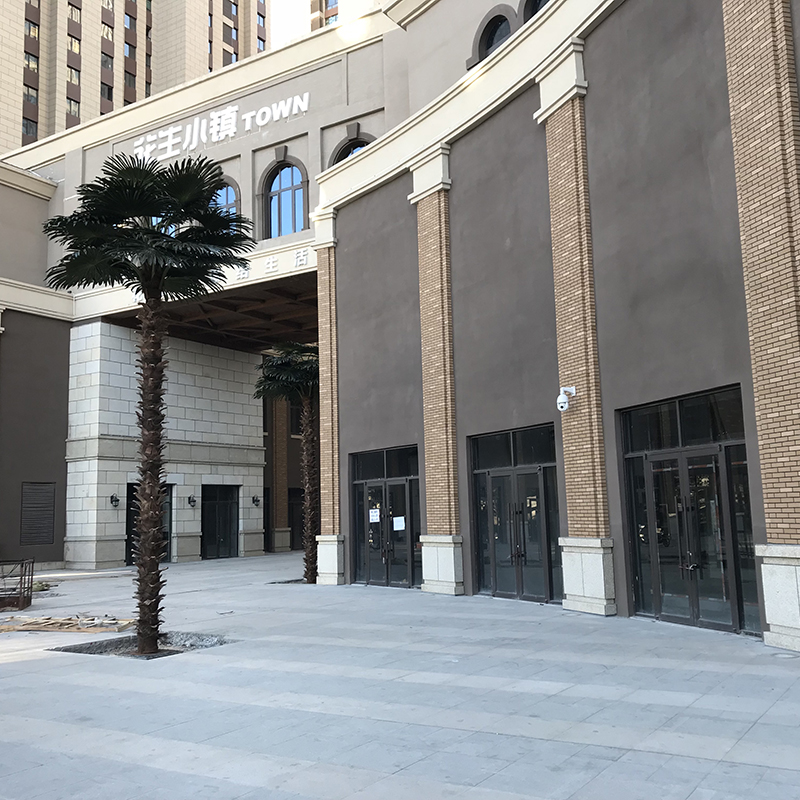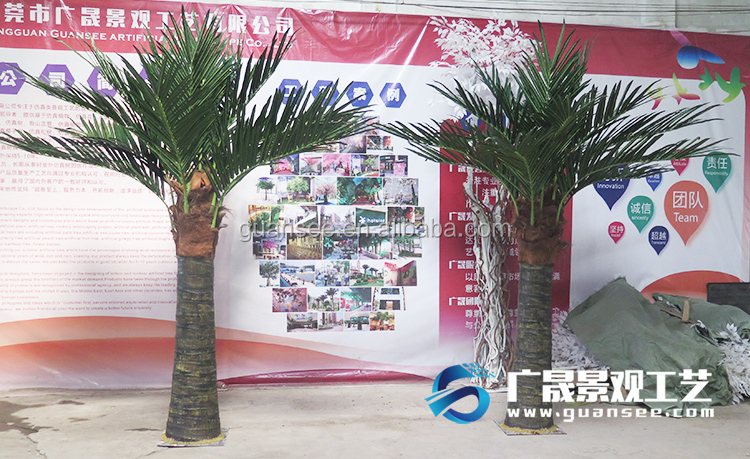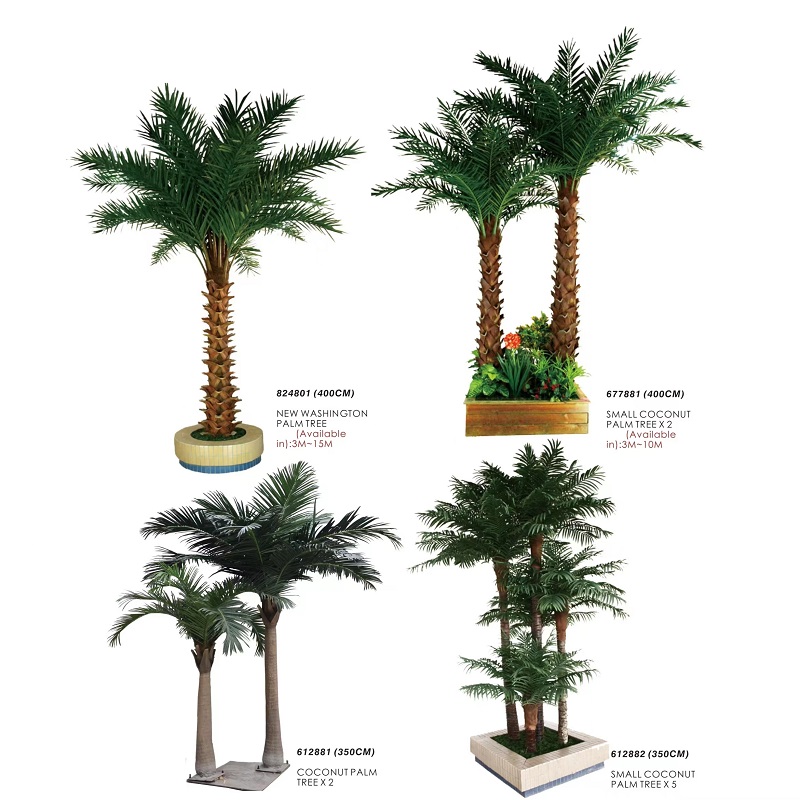
Due to the pressures of global climate change and population growth, palm trees are a very important commercial crop for many regions. However, environmental and social issues caused by traditional planting methods and harvesting methods are also receiving increasing attention. Therefore, artificial plastic palm trees were proposed as a sustainable alternative, which gradually attracted people's attention and set off a new revolution.

Artificial plastic palm trees, as the name suggests, are tree models made of plastic. It is usually based on a real palm tree design and replicates its appearance and structure. These trees can be used in various occasions such as landscape decoration, commercial display, theme parks, and places that need to feel tropical, such as European resorts, shopping centers, etc. They can also be used in filmmaking, replacing the danger and inconvenience that may have been present when shooting with real palm trees in the past.
Artificial plastic palm trees have a range of advantages over real palm trees. First, they do not require regular pruning and trimming, thus reducing labor and costs. Second, they do not require watering and fertilizers, thus reducing consumption of land and water resources. These artificial trees can also be produced in any climate, whether it's the frigid Arctic Circle or the scorching heat of the Sahara Desert. Most importantly, they can replace real palm trees, thereby reducing the damage to wildlife habitat, labor problems of palm oil cultivation and other problems.

However, artificial plastic palm trees also have some disadvantages and challenges. First of all, they are made of plastic, and using plastic will bring about environmental pollution and garbage problems. While many manufacturers are using sustainable materials and production techniques, environmental concerns still need to be taken into account. Second, they may lack the color and texture of natural palm trees, and thus may lack realism in appearance. Furthermore, they may also be perceived as "fake" or "not authentic" products, which in some cases may not serve the desired purpose.
Despite some challenges, artificial plastic palms have great potential and advantages. As technology continues to advance, manufacturers will be able to better utilize sustainable materials and production techniques, thereby reducing environmental impact and waste issues. Moreover, with rising consumer awareness and demand for sustainability, the acceptance of such sustainable alternatives is gradually increasing. Therefore, artificial plastic palm trees will be a promising and sustainable alternative to commercial crops in the future.

In conclusion, artificial plastic palm trees are an emerging, sustainable alternative to commercial crops that can help reduce land and water consumption, damage to wildlife habitat, reduce environmental impact and litter issues, and It provides a new choice for various occasions such as landscape decoration and commercial display. Despite some challenges and drawbacks, as technology advances and consumer awareness increases, artificial plastic palm trees will have wider application prospects in the future. We should continue to pay attention to and support the development and application of such sustainable alternatives.